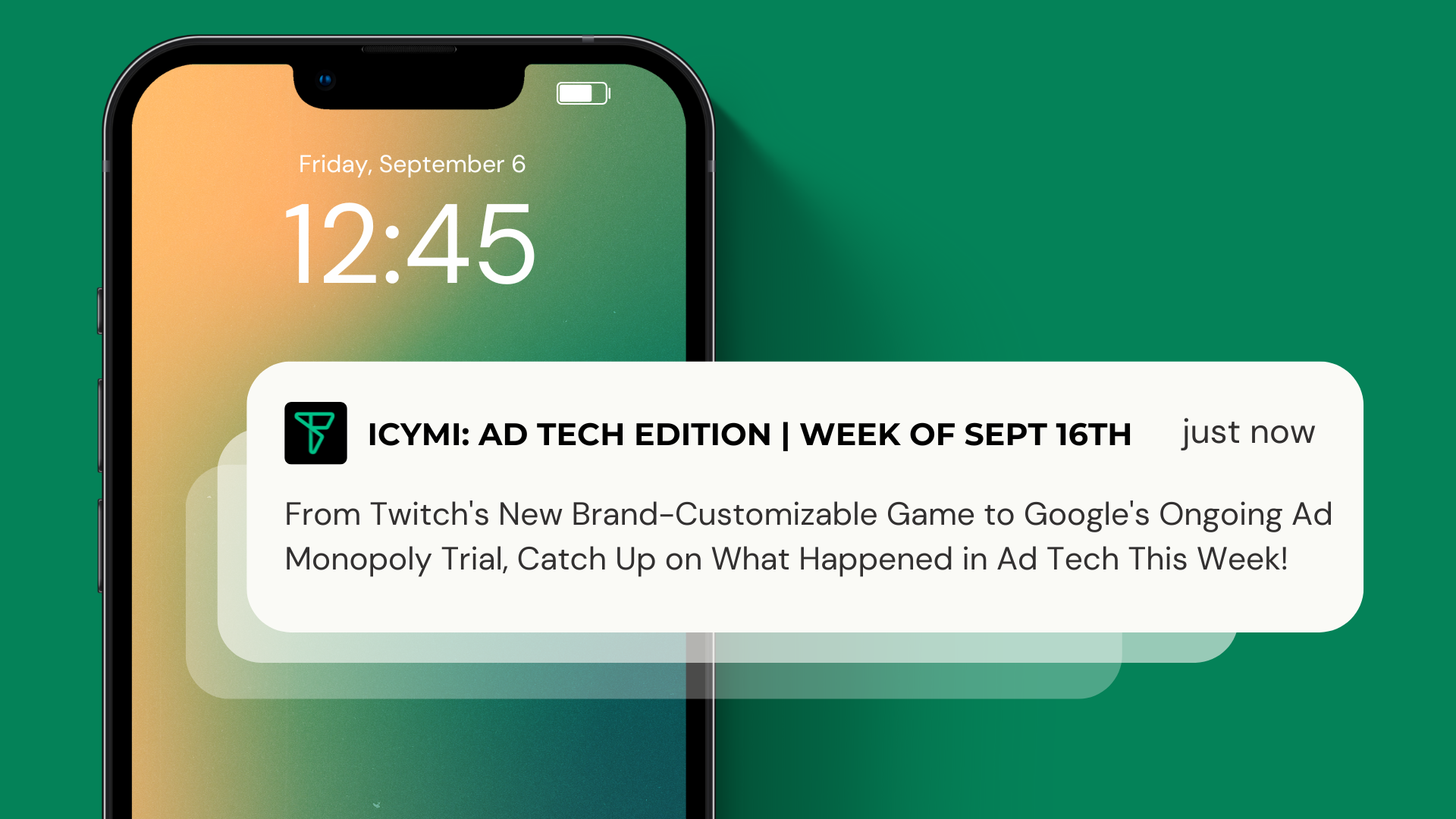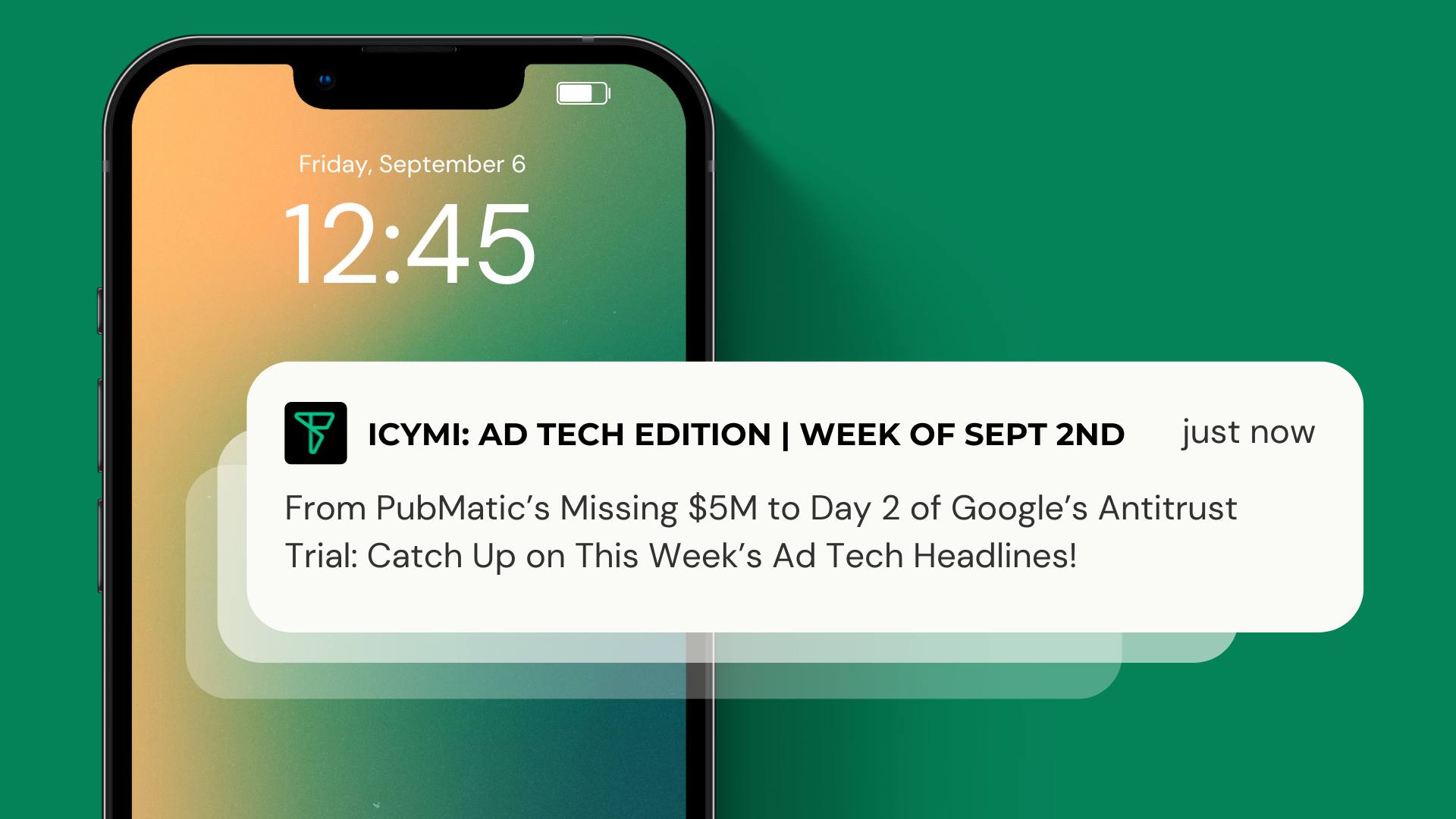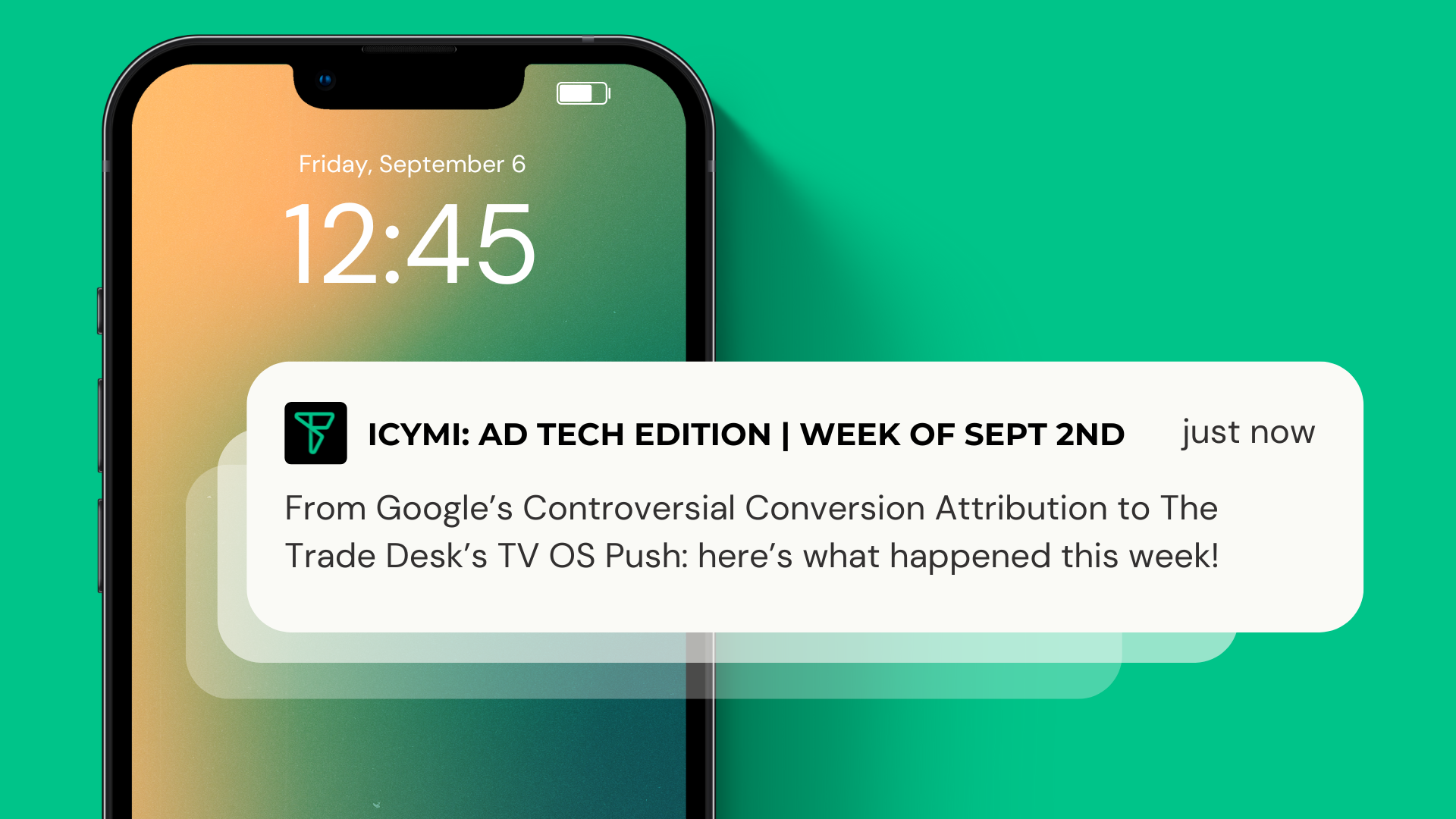Bits and Bobs from around the industry:
Google Plans To Ring In The New Year With Third-Party Cookie Deprecation (For Real)
On January 4, 2024, Google will release a new browser feature called Tracking Protection, which automatically cuts off a website’s access to third-party cookies. Chrome will activate Tracking Protection for 1% of a randomly selected group of global users. This marks a key milestone in Google’s Privacy Sandbox initiative, with plans to completely phase out third-party cookies in Chrome by the end of 2024, pending approval from the UK’s Competition and Markets Authority. The slow rollout aims to allow developers to test their readiness for a web without third-party cookies. Critics, including The Trade Desk’s VP of Product, Bill Simmons, argue that the Privacy Sandbox initiative could lead to lower ad prices and slower page loads, entrenching Google’s power over the online advertising ecosystem.
Publishers, Don’t Settle For Below-Floor Pricing
The evolution of the programmatic advertising ecosystem and the emergence of supply-side platforms (SSPs) is designed to protect publishers’ interests in automated auctions. However, the introduction of header bidding, which integrated multiple SSPs into unified auctions, increased yield but also raised infrastructure costs, especially for demand-side platforms (DSPs). This led to supply-path optimization (SPO) initiatives by advanced DSPs, focusing on efficiency and cutting out partners with high take rates.
The Trade Desk’s (TTD) response to the SPO revolution introduced OpenPath, aiming to reduce the number of supported SSPs, challenge Google’s Open Bidding framework, and bypass the exchange layer to integrate directly with publishers. OpenPath is based on the premise that if SSPs are not adding value, there’s no reason for a DSP to use them, emphasizing efficiency from the buyer’s perspective.
Publishers are warned about the potential dangers of adopting OpenPath without understanding the broader implications. While OpenPath may offer buyers a direct line to a publisher’s supply, the author argues that DSPs’ bidder algorithms are designed to prioritize the buyer’s interests, aiming to reduce competition and find the lowest prices. TTD’s decision to ignore publisher floor prices is presented as a wake-up call for publishers to reassess their setups, retain control over pricing, and avoid accepting bids below floor prices from their primary SSP.
The overarching message is a call to action for publishers to be vigilant, adapt their setups to prevent potential pitfalls in the evolving programmatic advertising landscape, and regain control over their inventory and pricing to maintain a balanced ecosystem.
MiQ announces 100% cookieless audience targeting in the UK and launches largest independent Privacy Sandbox attribution test
MiQ, a global programmatic media partner, has announced its transition to 100% cookieless campaigns across all media channels and platforms in the UK. The company is now focusing on cookieless measurement, leveraging Chrome’s Privacy Sandbox attribution testing for performance campaigns. MiQ Connected Audiences, the industry’s most comprehensive audience dataset, combines anonymous, authenticated, and real-time browser-based publisher data.
The company is implementing a testing program for post-cookie measurement, collaborating with advertisers and ad tech partners to understand the implications of emerging privacy technologies. Advertisers testing Privacy Sandbox attribution with MiQ will receive real-time audience generation, campaign analytics, and comparison reporting. MiQ is also testing measurement solutions in Edge, Firefox, and Safari to prepare for privacy updates beyond 2024. The company aims to provide a head start for agencies and brands in preparing for a world without cookies.





